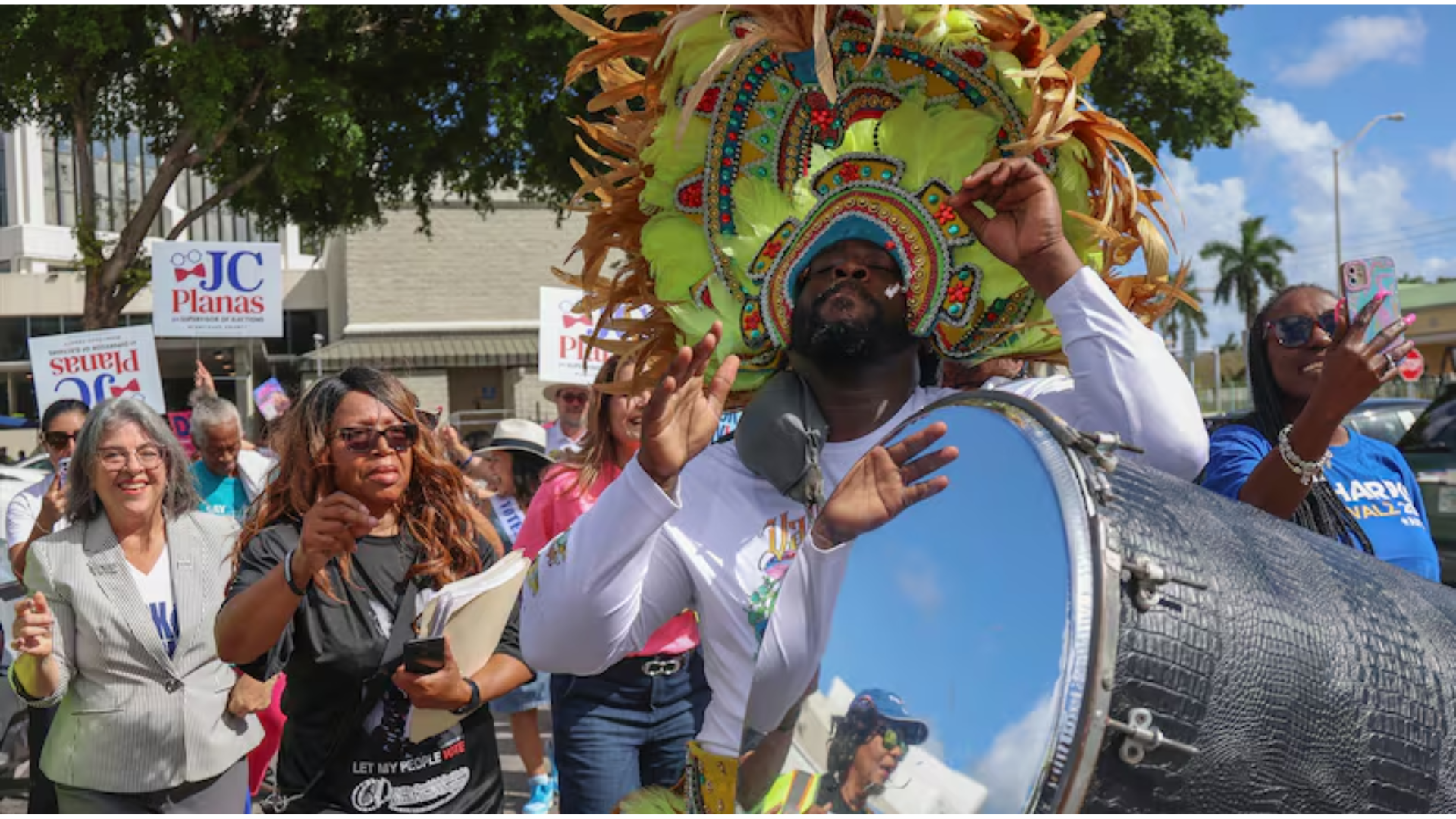
During his recent speech at the Detroit Economic Club, Donald Trump stirred controversy by claiming that if Vice President Kamala Harris wins the presidency, “the whole country will end up being like Detroit.” Trump warned that Americans would “have a mess on [their] hands” under Harris’s leadership.
This comment is part of a pattern for Trump, who previously described Detroit as a place where living was “like living in hell” and, earlier this year, referred to Milwaukee as a “horrible city.”
Detroit residents and leaders have responded strongly to Trump’s remarks, which they view as dismissive of the city’s progress. Despite its challenges, Detroit has worked hard to rebuild over the past decade, seeing drops in crime and an increase in new investments, especially in manufacturing.
DNC Spokesperson Stephanie Justice issued a swift condemnation, stating, “Michiganders have had enough of Donald Trump bad-mouthing and attacking them at every turn.” She noted that a Detroit-area auto plant closed under Trump’s watch, accusing him of lacking a commitment to Michigan’s economic welfare.
“He’ll find out this November how Michiganders feel about these kinds of offensive attacks,” she added.
Governor Walz joined in the pushback, offering a pointed critique of Trump’s rhetoric.
Yesterday Trump said, ‘Our whole country will end up being Detroit. You’re going to have a mess on your hands.’ If he ever spent any time in the Midwest, he’d know Detroit is experiencing an American comeback Walz stated.
“The city is growing, crime is down, and factories are opening again. But all these guys know about manufacturing is how to manufacture bu***hit.” Walz’s remarks emphasize the disconnect between Trump’s rhetoric and Detroit’s reality.
Detroit’s recent progress includes investments in the auto industry and other sectors, contributing to a revival in the city’s economy and job market.
As crime rates decrease and new businesses open, Detroiters are working hard to redefine their city’s image, and many feel that Trump’s criticism is unfair and uninformed. While Trump portrays Detroit as a symbol of decline, local leaders see it as an example of resilience and recovery.
By doubling down on negative portrayals, Trump risks alienating voters who are committed to Detroit’s progress.
Critics argue that Trump’s approach to urban centers like Detroit and Milwaukee is part of a larger political strategy aimed at appealing to rural voters by positioning cities as symbols of America’s problems.
His frequent attacks on urban areas highlight regional divides, casting cities as antagonists rather than as vital parts of the country’s fabric. This rhetoric may resonate with some voters, but it risks alienating others who see these cities as integral to America’s economic and cultural strength.
Justice’s comments reflect the frustration many Michiganders feel toward Trump’s divisive rhetoric. She emphasized that Trump’s administration did little to support Detroit’s economy, particularly in the auto industry, which remains crucial to Michigan’s livelihood.
“Michiganders are tired of the antagonism,” Justice said, underscoring that residents are ready to back leaders who appreciate their efforts to rebuild and create opportunities for their communities.
For many Detroit residents, Trump’s words feel not just insulting but also out of touch with the city’s progress. Governor Walz’s remarks highlight Detroit’s resilience, portraying the city as an emblem of hope and recovery.

Detroit’s progress is driven by the dedication of its residents, who have worked to overcome challenges and foster a more prosperous future. Trump’s portrayal of the city as a cautionary tale overlooks these achievements and dismisses the efforts of those working to improve their community.
As Michigan gears up for the upcoming election, Trump’s comments may backfire, further motivating voters in Detroit to reject his message. The city, which has overwhelmingly voted against Trump in the past, is likely to continue supporting candidates who understand Detroit’s needs and respect its potential.
Detroiters are proud of their city’s transformation, and for many, Trump’s words only reinforce their resolve to keep moving forward.
Governor Walz’s statement serves as a reminder that Detroit’s story is not just one of struggle but of perseverance and growth. The city is experiencing a comeback, with drops in crime and a rise in new jobs, showing the world that it is much more than the negative image Trump paints.
As Election Day approaches, Michiganders will have the chance to show where they stand, likely supporting candidates who value their contributions to America’s future and rejecting those who dismiss their achievements.













